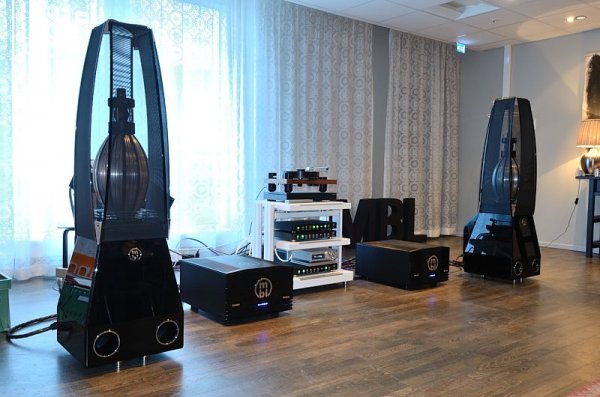Hi all,
although I am a long time reader of this forum this is my first post.
I would like start by
thanking you all for the valuable information, knowledge and opinions I gathered here through reading your posts over the years.
I would also like to thank you for drawing my attention to the Trinity DAC.
I knew the brand but did not know their latest generation products like the DAC.
Well, it just so happened that I got a chance to listen to one last month.
I´m still asking myself if it was a blessing or a curse.

To summarize my impressions,
in my subjective opinion the Trinity DAC right now is a game-changer in the rapidly growing DAC world.
Dietmar Bräuer has created something very special here.
I've auditioned a few high end DACs at home for long periods of time and also at showrooms (MSB Diamond+, DCS Scarlatti, Emm Labs, Metronome...).
All had their relative strengths and weaknesses, some had a little more air and resolution than others, some a slightly broader image, more speed, more bloom or +/- digital sheen or grain.
(At that point in time, my favorite was the MSB)
However, when you start hearing the Trinity you stop paying attention to those things.
Let me try to explain:
Although it has a very high resolution, letting me hear deep into the recording like no other DAC I've heard before, it doesn't throw it into your face like some.
It doesn't try to impress you with ultra high resolution, deep tight bass or huge dynamic swings.
You have all those things in spades (maybe even to a greater degree) but all that information just flows with the music in a cohesive manner like no other dac I've heard before (by far).
One other thing I think contributes to the listening experience as a whole is the absolute black silence.
I'm not talking about digital "black" silence here.
What I'm saying is that the Trinity on his own is utterly silent (very low noisefloor?) and that lets you perceive the smallest clues in the recordings that help to give the illusion you are there, on the recording location.
I won't bother you with more impressions or adjectives. Besides, my audiophile vocabulary is worse and much smaller than most.
As you can imagine after that listening session I couldn't forget what I heard. I knew I had to have one.
Well, after some serious (financial) considerations, I made the decision!
Since the last two weeks I have been the proud owner of a trinity DAC

and I can say that my initial positive impressions only grew stronger with time.
I don't have the technical expertise some of you have here, to understand the technical principles upon which the Trinity DAC was built and frankly I don't care (and don't understand the objective of some of the discussions around it).
All I'm interested is in the end result and that my friends is stellar.
I also don't want to give you the impression here that I listened to all the high end DACs in the market.
For instance I've not listened to the Vivaldi stack. (I couldn't afford it anyway).
And I'm not saying it's the best DAC available right now (who can say that, considering all the subjectivity involved in the listening process) although I'm sure some of you will jump in here and say "well, since he owns it....".
The only advice I can give, if you are in the market for the best DAC in the same (or higher) price bracket of the Trinity, please go and try to listen to one for yourselves before making a decision.
Even in smaller systems it can be justified, considering the improvements it will bring to your listening experience.
Please forgive my enthusiasm with the Trinity DAC but I wanted to share my experience with all of you here in the forum.
PS I'm using the Trinity with a computer through USB (using a Totaldac USB cable) and with a Transport through SPDIF (AES/EBU). I think the USB solution has a slight advantage.
And before anyone asks, no, I'm not affiliated with the company nor have I any commercial interests related to it or any Trinity distributor.
Thank you all for your patience reading this long post.











